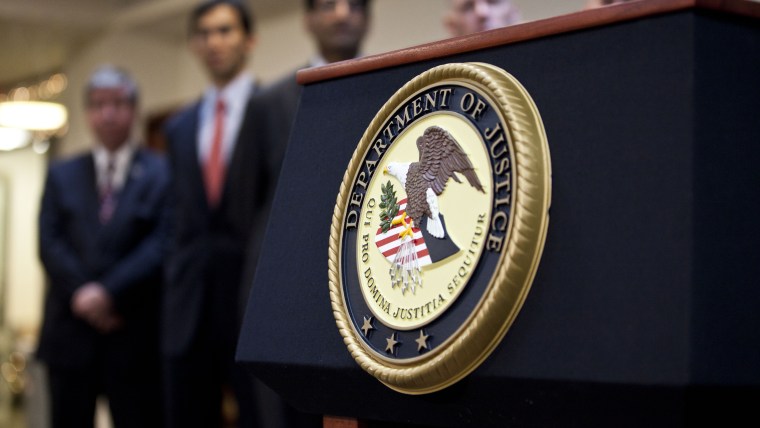There's no great mystery as to why Donald Trump grew to hate Attorney General Jeff Sessions with such passion. Indeed, the president has been quite candid on the subject, explaining that he expected Sessions to cover for him at the Justice Department, and when the Alabama Republican recused himself from the Russia scandal, it made Trump vulnerable.
With this in mind, the day after the midterm elections, Sessions was shown the door. Two days later, Trump announced William Barr, George H.W. Bush's attorney general, would be Sessions' successor.
And while Barr is controversial for a wide variety of reasons, it's somewhat ironic that he may need to recuse himself from the investigation into the Russia scandal, too.
We first heard questions along these lines two weeks ago when we learned the president had approached Barr about possibly joining his legal defense team. It raised the prospect of Barr familiarizing himself with Trump's legal position in response to a special counsel investigation he would oversee if confirmed, which might very well necessitate his recusal from the probe.
That was an important story, of course, but the Wall Street Journal's report on a previously unreported Barr memo takes these concerns to a whole new level.
William Barr, President Trump's choice for attorney general, sent an unsolicited memo earlier this year to the Justice Department that excoriated special counsel Robert Mueller's inquiry into potential obstruction of justice by Mr. Trump, saying it is based on a "fatally misconceived" theory that would cause lasting damage to the presidency and the executive branch.The 20-page document, which was reviewed by The Wall Street Journal, provides the first in-depth look at Mr. Barr's views on the special counsel's Russia investigation, which he would likely oversee if confirmed.In the memo, Mr. Barr wrote he sent it as a "former official" who hoped his "views may be useful." He wrote he was concerned about the part of Mr. Mueller's probe that, according to news reports in the Journal and elsewhere, has explored whether Mr. Trump obstructed justice in asking then-FBI director James Comey to drop an investigation into former national security adviser Mike Flynn's contacts with Russia, and by later firing Mr. Comey.
The documented was dated June 8, 2018.
Given what we know of Barr's legal philosophy, it's not exactly surprising that he'd draw these conclusions about Robert Mueller's probe and the scope of presidential power. Indeed, it's entirely consistent with the Republican lawyer's worldview.
But that's not the point. Rather, we're confronted with the realization that William Barr took it upon himself to send the Justice Department an unsolicited, 20-page document, condemning the special counsel's efforts as, among other things, "grossly irresponsible" and opening the door to "potentially disastrous implications."
And if confirmed by the Senate in the new year, Barr will be responsible for overseeing the investigation he's already denounced.
One need not be a legal expert or constitutional scholar to realize the case for Barr's recusal is rather obvious.
There is some question about Trump's knowledge of the memo in question. The WSJ article added that Barr, after having been offered the job, "briefly told the president that he had written a memo about aspects of the Russia probe that could spur questions during his confirmation hearing."
Maybe Trump didn't care. Maybe Trump liked Barr more after hearing about the document.
Either way, this is going to make for some exceedingly difficult questions during the upcoming confirmation hearings, with senators asking questions for which there don't appear to be easy answers.
Senate Minority Leader Chuck Schumer (D-N.Y.) issued a statement this morning describing Barr as "fatally conflicted from being able to oversee the Special Counsel's investigation." The Democratic leader added, "Since Mr. Barr hasn't been formally nominated yet, the president must immediately reconsider and find another nominee who is free of conflicts and will carry out the duties of the office impartially."
